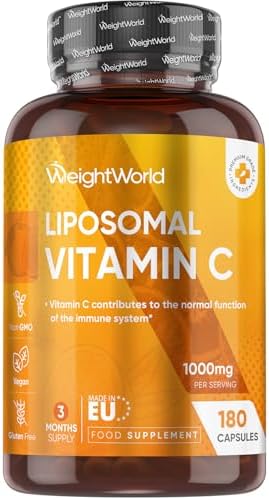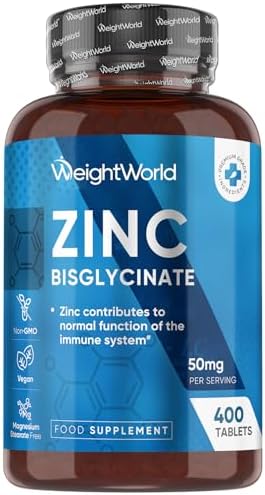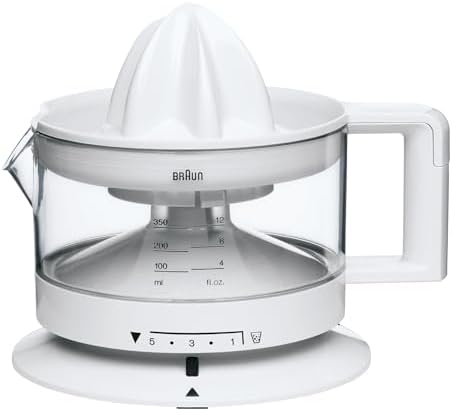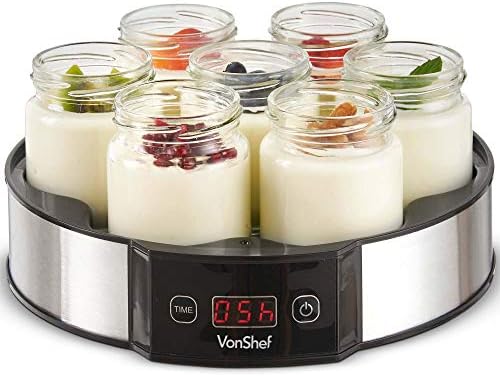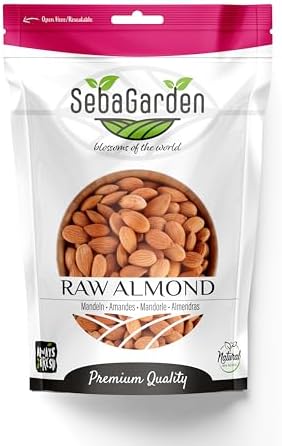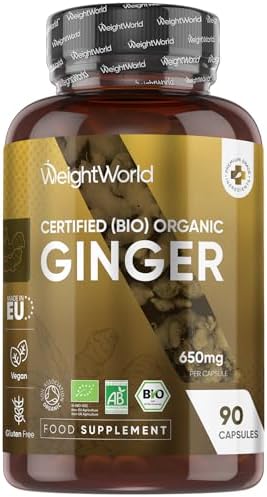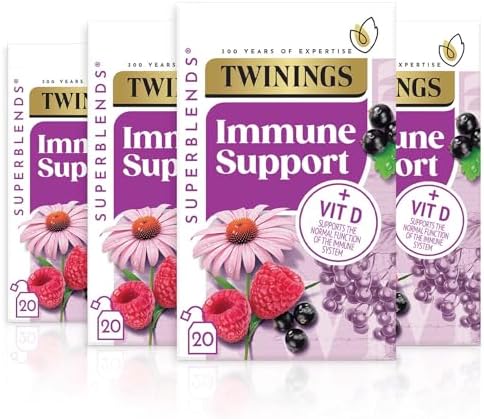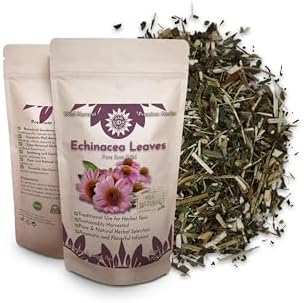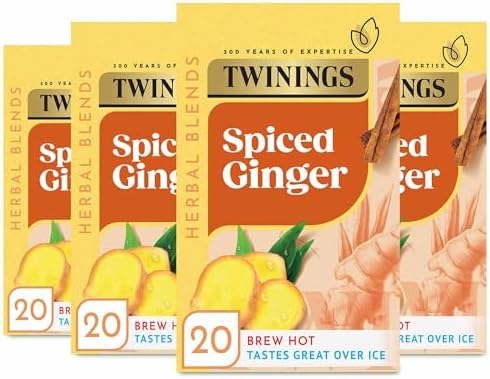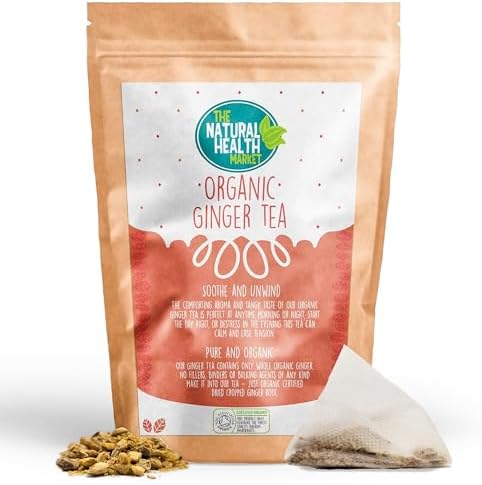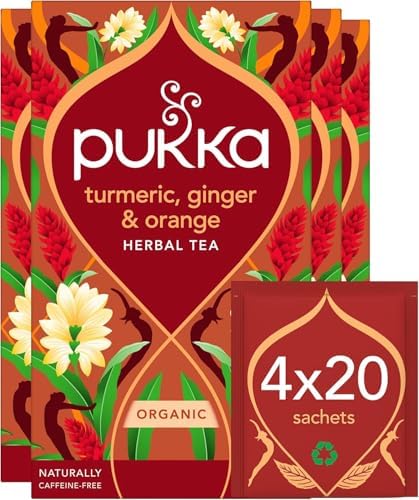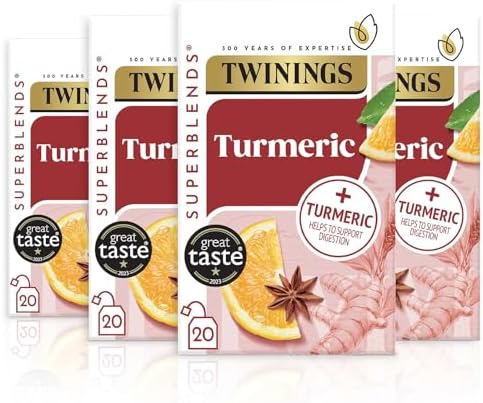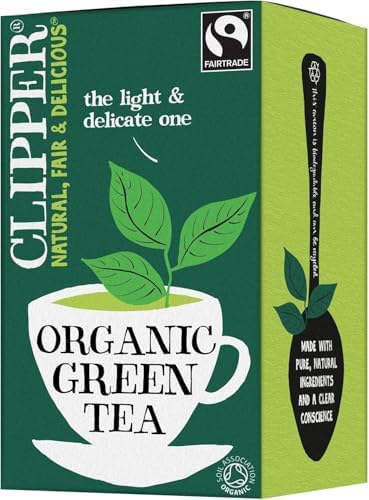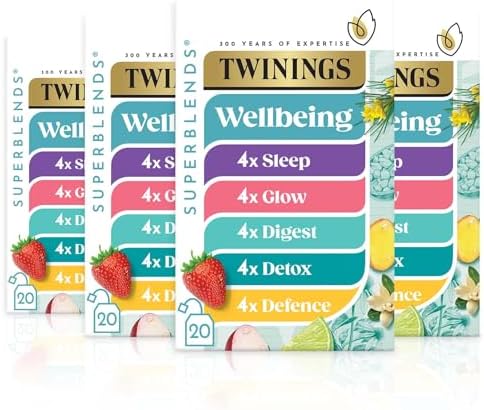A strong immune system is the foundation of good health and vitality. In this section, we’ll explore natural, science-backed ways to support your body’s defenses—through nutrition, lifestyle habits, supplements, stress management, and more. These simple strategies are designed to help you stay resilient, energized, and well all year round.

Discover what works for you — hover over the images below to explore blogs tailored to your interests.



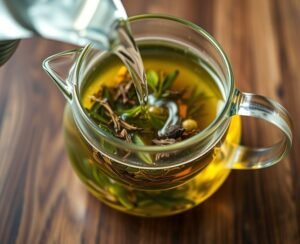
Find The Highlights Instantly

Understanding the Immune System
The immune system is a complex network of cells, tissues, and organs. Its main role is to defend the body against harmful invaders such as bacteria, viruses, and parasites. A coordinated effort is carried out by different components, including white blood cells, antibodies, and the lymphatic system.
White blood cells, also called leukocytes, are key defenders of the body. They identify and neutralize foreign substances before damage is caused. Several types of leukocytes exist, including lymphocytes, monocytes, and neutrophils. Each one is specialized for a different type of immune response.
Antibodies, or immunoglobulins, are produced by B cells. These proteins are designed to recognize and bind to antigens, which are substances that trigger immune activity. Once bound, pathogens are more easily removed from the body. The lymphatic system further supports immunity by filtering harmful substances and transporting lymph, which is rich in immune cells. In addition, it plays a role in fluid balance and the circulation of immune defences.
The immune system can be weakened by various factors. Stress, for example, triggers cortisol release, which over time suppresses immunity. Poor nutrition can also reduce the production and function of immune cells, particularly when vitamins and minerals are lacking. Sleep deprivation has been shown to impair immune recovery, since rest is critical for repairing and regenerating immune components. These influences highlight why lifestyle choices are essential. A balanced diet, good sleep, and targeted supplements can all contribute to stronger defenses provided by nature.
The Role of Supplements in Immune Health
Supplements are increasingly recognized as useful tools for maintaining a resilient immune system. While a varied diet remains the foundation, nutrient needs are not always fully met by food. This gap can be especially noticeable during times of illness or stress, when higher demands are placed on the body. In such cases, supplements can provide a practical solution.
Specific nutrients are strongly linked to immune performance. Vitamin C supports the production of immune cells and functions as a powerful antioxidant. Vitamin D activates immune cells that target pathogens, while zinc is crucial for immune signaling and has been shown to shorten the duration of colds. Probiotics, meanwhile, strengthen gut health, which is closely tied to overall immunity.
Health professionals emphasize that supplements are not substitutes for healthy living. Instead, they are most effective when used alongside good nutrition, exercise, and adequate sleep. Product quality should also be considered carefully, since not all supplements provide clinically effective dosages. For individuals with dietary restrictions, nutrient absorption issues, or age-related needs, supplements may be especially valuable.
In summary, targeted supplementation can be a smart way to strengthen immunity. By understanding the roles of key nutrients, supplements can be integrated into a broader, holistic approach to wellness.
Top 7 Supplements for Immune Support
A strong immune system is vital, especially during cold and flu season. The following seven supplements are widely studied for their immune-boosting effects.
1. Vitamin C – Acts as an antioxidant and stimulates white blood cell production. Dosages of 500–1000 mg daily are commonly recommended. Studies show colds can be shortened and respiratory health improved.
2. Zinc – Essential for immune cell development and signaling. A daily intake of 15–30 mg is often advised. Research suggests zinc can reduce the length and severity of infections.
3. Elderberry – Contains flavonoids that fight viral activity. Typically, 300–600 mg of extract is used. Evidence supports its ability to lessen flu and cold symptoms.
4. Vitamin D – Known as the “sunshine vitamin,” it supports immune activation. Daily intake of 1000–2000 IU is usually sufficient. Low levels are associated with increased respiratory infections.
5. Probiotics – Help maintain a healthy gut microbiome, which influences immune balance. A range of 1–10 billion CFUs per day is recommended. Studies show probiotics reduce respiratory illnesses.
6. Garlic – Contains allicin, a compound with antimicrobial effects. Around 600–1200 mg of extract is commonly taken. Evidence suggests garlic may reduce the frequency of colds.
7. Astragalus Root – A traditional Chinese herb that supports immune function. Capsules containing 500–1000 mg daily are often used. Early research shows benefits for infection resistance.
These supplements can provide substantial immune support. However, medical guidance is strongly advised before starting any new regimen, especially if medications are already being taken.
Incorporating Supplements into Your Routine
Adding immune-supporting supplements to a daily routine can bring long-term benefits. However, effectiveness depends on choosing the right products and using them consistently. High-quality brands should be selected, and ingredient transparency should be prioritized.
Supplements are usually absorbed more effectively when taken with food. This also reduces the chance of stomach discomfort. Setting reminders or keeping them visible can help maintain consistency in daily use.
Interactions must also be considered. Some supplements may interfere with prescribed medications or amplify their effects. For this reason, guidance from a healthcare professional is strongly recommended before beginning any supplement plan. With the right approach, supplements can become a valuable part of an overall wellness strategy.
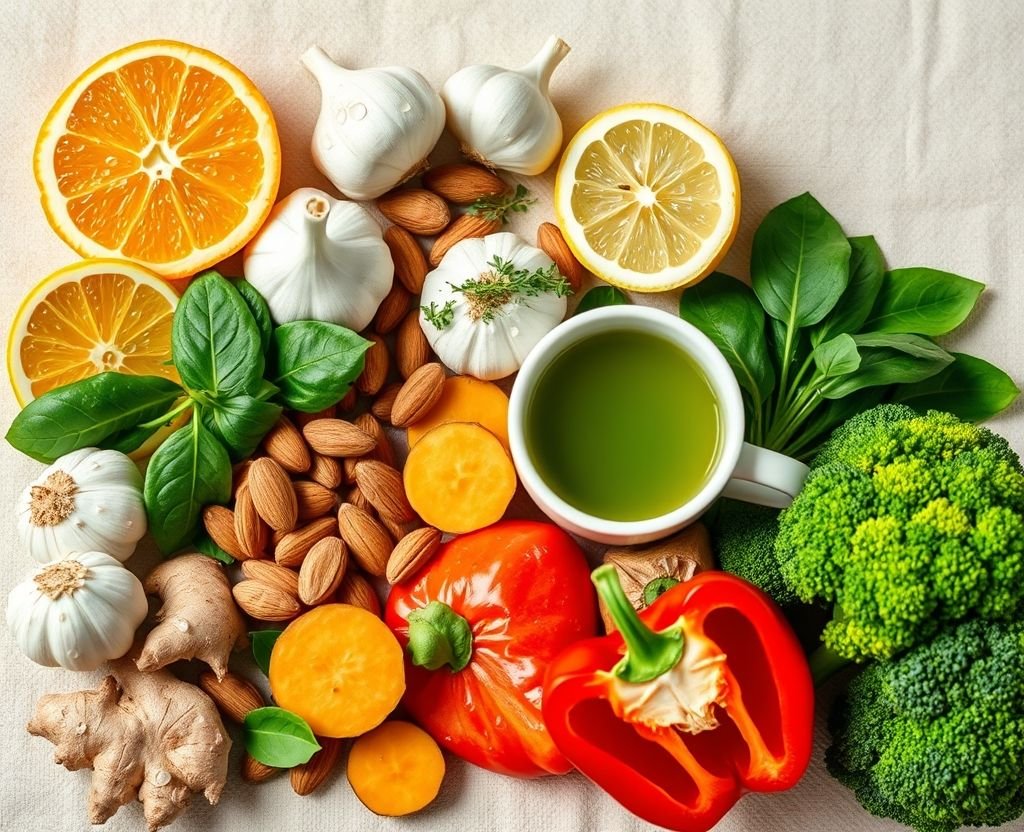
10 Foods That Naturally Strengthen Your Immune System: Your Guide to Better Health
Your immune system works tirelessly to protect you from illness. However, many people don’t realize that the foods they eat can significantly impact their body’s natural defenses. Furthermore, building immunity doesn’t require expensive supplements or complicated routines.
In this comprehensive guide, we’ll explore ten powerhouse foods that are scientifically proven to boost your immune system. Moreover, these foods are easily found in most grocery stores and can be incorporated into your daily meals without breaking the bank.
Why Food-Based Immunity Matters More Than Ever
Before diving into our list, it’s important to understand how nutrition affects your immune response. Research consistently shows that certain nutrients are essential for immune cell function. Additionally, whole foods provide these nutrients in forms that are easily absorbed by your body.
Unlike synthetic supplements, natural foods contain complementary compounds that work together. Consequently, your body receives maximum benefit from these immune-boosting nutrients.
1. Citrus Fruits: Nature’s Vitamin C Powerhouses
Citrus fruits are widely recognized for their immune-boosting properties. Oranges, lemons, grapefruits, and limes are packed with vitamin C, which is essential for white blood cell production.
Moreover, vitamin C acts as a powerful antioxidant that protects cells from damage. Studies have shown that regular citrus consumption can reduce the duration of common colds. Therefore, adding citrus to your daily routine is one of the simplest ways to support your immune system.
Pro tip: Fresh citrus juice is more beneficial than processed varieties. Consider investing in a quality citrus juicer to maximize your vitamin C intake.
- 350ML capacity
- Adjustable pulp control
- Automatic stop/start
2. Garlic: The Ancient Immune Defender
Garlic has been used medicinally for thousands of years, and modern science confirms its immune-boosting properties. This pungent bulb contains allicin, a compound that enhances immune cell activity.
Furthermore, garlic possesses antimicrobial and antiviral properties. Regular garlic consumption has been linked to reduced frequency of colds and faster recovery times. Additionally, garlic supports cardiovascular health, which indirectly benefits immune function.
Shopping tip: Fresh garlic is more potent than pre-minced varieties. Look for firm bulbs with tight, papery skin for the best quality.
3. Spinach: The Nutrient-Dense Leafy Green
Spinach is loaded with immune-supporting nutrients including vitamin C, beta carotene, and folate. These compounds work together to enhance your body’s infection-fighting abilities.
Moreover, spinach contains antioxidants that reduce inflammation throughout the body. When inflammation is controlled, your immune system can function more effectively. Therefore, incorporating spinach into salads, smoothies, or cooked dishes provides multiple health benefits.
Preparation note: Light cooking actually increases the availability of some nutrients in spinach. However, raw spinach also offers unique benefits, so variety is key.
4. Yogurt: Probiotic Power for Gut Health
Your gut houses approximately 70% of your immune system. Consequently, maintaining healthy gut bacteria is crucial for overall immunity. Yogurt with live active cultures provides beneficial probiotics that support this delicate ecosystem.
Additionally, yogurt is rich in protein and vitamin D, both essential for immune function. Greek yogurt, in particular, offers higher protein content than regular varieties. Furthermore, the probiotics in yogurt help crowd out harmful bacteria in your digestive system.
Quality matters: Choose yogurts with minimal added sugars and verified live cultures. Organic options often provide superior nutritional profiles.
- NUTRIENT-RICH YOGHURT: Make after-dinner-treats that bit healthier with the VonShef yoghurt maker, boasting gut-loving p…
- MORE FOR LESS: Why pay for overpriced flavoured yoghurt pots, full of secret sugars and additives? Create your own and g…
- 7 JARS & LIDS: Always have a pot of yoghurt on hand thanks to the individual 180ml jars, with an 8–14-hour timer for the…
5. Almonds: Vitamin E for Immune Support
While vitamin C gets most of the attention, vitamin E is equally important for immune health. Almonds are one of the best sources of this fat-soluble vitamin.
Moreover, vitamin E acts as a powerful antioxidant that protects cell membranes from damage. This protection is especially important for immune cells, which are constantly exposed to free radicals. Additionally, almonds provide healthy fats that help your body absorb vitamin E more effectively.
Serving suggestion: A small handful of almonds (about 23 nuts) provides your daily vitamin E requirement. Raw or lightly roasted almonds retain the most nutrients.
- Whole Natural Almonds, Delicious, Sweet Tasting Nuts
- Re-Sealable Bag for Continuous Freshness.
- Perfect for snacking, they’re also ideal for your favorite recipes
6. Green Tea: Antioxidant-Rich Immune Booster
Green tea contains high levels of epigallocatechin gallate (EGCG), a powerful antioxidant that enhances immune function. Unlike black tea, green tea is minimally processed, preserving these beneficial compounds.
Furthermore, green tea contains L-theanine, an amino acid that supports the production of germ-fighting compounds. Regular green tea consumption has been associated with reduced risk of infections and faster recovery from illness.
Brewing tip: Water temperature affects antioxidant extraction. Use water heated to 175-185°F for optimal results, and consider purchasing high-quality loose-leaf varieties.
- At Twinings, we carefully select our leaves from the best tea gardens around the world
- Gentle sencha steaming and pan firing creates this refreshing, earthy blend which retains its natural distinctive flavou…
- At Twinings, we choose our first and second flush green teas from select tea gardens in the Zhejiang, Jiangxi and Anhui …
7. Sweet Potatoes: Beta Carotene for Immune Defense
Sweet potatoes are rich in beta carotene, which your body converts to vitamin A. This vitamin is essential for maintaining the integrity of mucous membranes, your first line of defense against pathogens.
Additionally, vitamin A supports the production and function of white blood cells. Sweet potatoes also provide fiber, which feeds beneficial gut bacteria. Therefore, this versatile vegetable supports immunity through multiple pathways.
Cooking method: Baking sweet potatoes with the skin on preserves the most nutrients. The natural sugars become more concentrated during cooking, making them deliciously satisfying.
8. Red Bell Peppers: Vitamin C Champions
Surprisingly, red bell peppers contain nearly three times more vitamin C than oranges. They’re also rich in beta carotene, making them a double immune-system winner.
Moreover, red bell peppers are versatile and can be eaten raw or cooked. They add vibrant color and sweet flavor to any dish. Furthermore, their high water content helps maintain hydration, which is important for immune function.
Storage tip: Red bell peppers are best stored in the refrigerator and used within a week of purchase. Organic varieties often have superior flavour and nutrient profiles.
- 【LED Lighting】LED Lighting, highly efficient illumination, enables more clear and deep overview of fridge content.
- 【External Handle】The light and discrete handle blend in effortlessly with the overall clean and tasteful design.
- 【Bigger Door Shelves】A Big Door Shelf lets you safely store larger items inside the door.
9. Broccoli: The Immune-Supporting Superfood
Broccoli is arguably one of the most nutrient-dense vegetables available. It’s packed with vitamins A, C, and E, plus fiber and numerous antioxidants.
Additionally, broccoli contains sulforaphane, a compound that activates protective enzymes in your cells. This vegetable also provides folate, which is necessary for proper immune cell division. Therefore, regular broccoli consumption supports multiple aspects of immune health.
Preparation secret: Light steaming preserves the most nutrients while making them more bioavailable. Overcooking destroys many of broccoli’s beneficial compounds.
10. Ginger: Anti-Inflammatory Immune Support
Ginger has been used medicinally for centuries, and research confirms its immune-boosting properties. This spicy root contains gingerol, a compound with powerful anti-inflammatory effects.
Furthermore, ginger helps reduce nausea and supports digestive health. Since gut health is closely linked to immunity, ginger provides comprehensive support. Additionally, ginger’s warming properties can help your body fight off infections naturally.
Usage ideas: Fresh ginger is more potent than dried powder. Consider adding it to teas, smoothies, or stir-fries. Quality ginger supplements can also provide concentrated benefits.
- ORGANIC GINGER SUPPLEMENT: Also known as Zingiber Officinale, is a widely used spice with a long history of traditional …
- SOIL ASSOCIATION CERTIFIED ORGANIC CAPSULES: WeightWorld’s ginger root capsules are made of ingredients that are certifi…
- SUPPLEMENT WITH NATURAL PHYTOCOMPOUNDS: Ginger contains naturally occurring compounds such as terpenes, polyphenols, and…
Building Your Immune-Boosting Shopping List
Now that you know which foods support immune health, creating a strategic shopping approach becomes essential. Moreover, having the right tools and products makes incorporating these foods much easier.
Consider investing in quality kitchen equipment that helps you prepare these foods efficiently. A good blender, for instance, makes it simple to create nutrient-packed smoothies with spinach, citrus, and ginger. Similarly, a food processor can help you quickly prepare garlic and other aromatics.
Additionally, supplement wisely when whole foods aren’t enough. While food should be your primary source of nutrients, high-quality supplements can fill nutritional gaps. Look for products that have been third-party tested for purity and potency.
Simple Ways to Incorporate These Foods Daily
Making these immune-boosting foods part of your routine doesn’t have to be complicated. Start your day with a smoothie containing spinach, citrus, and ginger. Furthermore, snack on almonds instead of processed foods.
Additionally, replace regular potatoes with sweet potatoes in your favorite recipes. Use garlic liberally in cooking, and enjoy green tea instead of coffee occasionally. Moreover, add red bell peppers to salads, stir-fries, and snacks.
Finally, steam broccoli as a side dish, and incorporate yogurt into breakfast or snacks. These small changes, when made consistently, can significantly impact your immune health.
Your Next Steps to Better Immunity
Building a strong immune system through nutrition is a journey, not a destination. Therefore, start by adding one or two of these foods to your diet this week. Moreover, focus on consistency rather than perfection.
Remember, quality matters when it comes to immune-supporting foods. Organic options often provide superior nutritional profiles and fewer harmful additives. Additionally, proper storage and preparation help preserve the nutrients that make these foods so beneficial.
Your immune system deserves the best support you can provide. Furthermore, investing in your health today pays dividends in energy, vitality, and reduced illness down the road. Take action now by incorporating these powerful foods into your daily routine.
Ready to supercharge your immune system? Check out our recommended products for the highest quality versions of these immune-boosting foods and the tools you need to prepare them effectively.
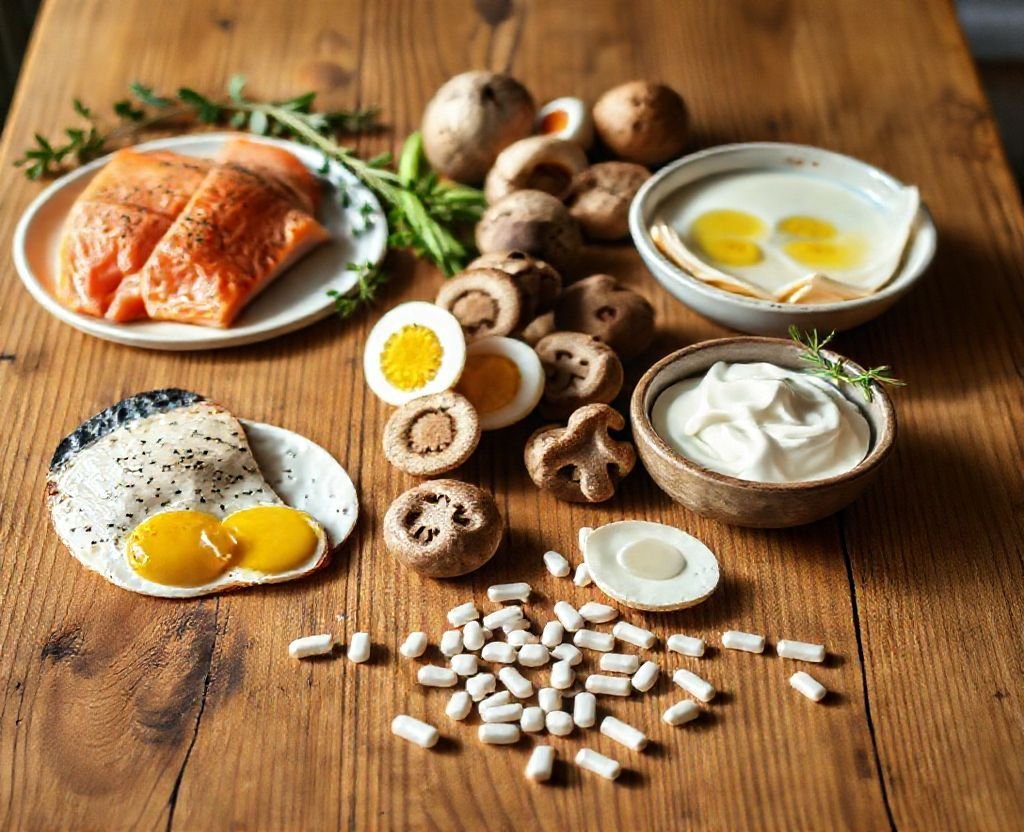
Vitamin D and Immunity: What You Need to Know for Year-Round Health
Your immune system works around the clock. However, many people don’t realize that one simple nutrient can make or break their body’s defense mechanisms. Vitamin D stands as one of the most crucial yet overlooked components of immune health.
The Hidden Connection Between Sunshine and Your Immune System
Most people think of vitamin D as the “bone vitamin.” Yet research reveals a much deeper story. Your immune cells contain vitamin D receptors throughout their structure. These receptors act like tiny locks, waiting for vitamin D to unlock their full protective potential.
When vitamin D levels drop, your immune system essentially operates with one hand tied behind its back. Studies show that people with adequate vitamin D levels experience fewer respiratory infections. Moreover, they recover faster when illness does strike.
Why Your Body Craves More Vitamin D Than You Think
The recommended daily allowance often falls short of what your immune system actually needs. Traditional guidelines focus on bone health alone. Meanwhile, immune function requires significantly higher levels for optimal performance.
Geographic location plays a major role in vitamin D production. People living above the 37th parallel struggle to produce adequate amounts during winter months. Furthermore, indoor lifestyles limit sun exposure year-round, creating widespread deficiency.
Age compounds this challenge. Adults over 50 produce 75% less vitamin D from sun exposure compared to younger individuals. Additionally, darker skin tones require longer sun exposure to generate the same vitamin D levels.
The Immune System’s Vitamin D Dependency
Vitamin D transforms your immune response in remarkable ways. First, it strengthens your innate immunity – your body’s first line of defense. This system includes physical barriers like skin and mucous membranes, plus cellular defenders that attack invaders immediately.
Beyond that, vitamin D fine-tunes your adaptive immunity. This sophisticated system creates targeted responses against specific threats. It also forms immunological memory, helping you fight off familiar pathogens more effectively in the future.
Research demonstrates that optimal vitamin D levels reduce inflammatory markers throughout the body. Chronic inflammation weakens immune function over time. Therefore, maintaining adequate vitamin D helps preserve your immune system’s long-term effectiveness.
Seasonal Challenges and Year-Round Solutions
Winter presents the greatest vitamin D challenge for most people. Sun exposure becomes limited, and dietary sources rarely provide sufficient amounts. Consequently, many individuals enter a cycle of seasonal immune vulnerability.
Smart supplementation offers a practical solution. High-quality vitamin D3 supplements can bridge the gap when natural production falls short. Look for products that combine vitamin D3 with vitamin K2 for enhanced absorption and utilization.
Timing matters with vitamin D supplementation. Taking it with healthy fats improves absorption significantly. Many people find success with morning doses alongside breakfast. This approach also supports natural circadian rhythm maintenance.
Food Sources: Beyond the Supplement Bottle
While supplements provide convenience, food sources offer additional nutritional benefits. Fatty fish like salmon, mackerel, and sardines deliver substantial vitamin D amounts. These foods also provide omega-3 fatty acids, which support immune function independently.
Egg yolks from pasture-raised chickens contain higher vitamin D levels than conventional eggs. Similarly, mushrooms exposed to UV light during growth develop significant vitamin D content. These natural sources provide a foundation that supplements can enhance rather than replace.
Fortified foods expand your options further. Many dairy products, plant-based milks, and cereals include added vitamin D. However, check labels carefully, as fortification levels vary significantly between brands and products.
Testing and Optimization: Know Your Numbers
Blood testing removes the guesswork from vitamin D optimization. The 25-hydroxyvitamin D test reveals your current status accurately. Most healthcare providers consider levels between 30-50 ng/mL adequate, but immune function may benefit from higher ranges.
Testing becomes especially important if you experience frequent infections. Low vitamin D could be the missing piece of your health puzzle. Regular monitoring allows you to adjust supplementation based on actual results rather than assumptions.
Consider testing twice yearly – once in late summer when levels peak, and again in late winter when they typically bottom out. This approach reveals your seasonal patterns and helps optimize your supplementation strategy accordingly.
- WHAT IT TESTS: This vitamin D deficiency test kit checks the level of 25-hydroxyvitamin D (25 (OH) D) in your blood. It …
- EASY SELF-TESTING: You can easily perform this test at home. This vitamin D home test is designed for self-testing and g…
- VITAMIN D IMPORTANCE: Vitamin D is essential for your body as it helps with the absorption of calcium, iron, magnesium, …
Practical Steps for Immune-Supporting Vitamin D Levels
Start with sensible sun exposure when weather permits. Aim for 10-30 minutes of midday sun several times per week. Your skin tone, location, and season determine the exact amount needed. Always balance sun exposure with skin cancer prevention.
Choose supplements wisely when natural production isn’t sufficient. Look for vitamin D3 rather than D2, as it raises blood levels more effectively. Products that include cofactors like magnesium and vitamin K2 often provide superior results.
Consistency trumps perfection with vitamin D supplementation. Daily doses work better than sporadic high-dose approaches. Your body processes and utilizes steady amounts more efficiently than occasional large doses.
Supporting Your Journey to Better Health
Optimal vitamin D levels represent just one piece of the immune health puzzle. However, it’s often the missing piece that transforms your body’s defensive capabilities. Combined with proper sleep, regular exercise, and stress management, adequate vitamin D creates a foundation for year-round wellness.
Quality supplements can bridge the gap between your current status and optimal immune function. Look for third-party tested products from reputable manufacturers. These investments in your health pay dividends through reduced illness frequency and improved recovery times.
Your immune system deserves the support that only optimal vitamin D levels can provide. Whether through careful sun exposure, strategic food choices, or targeted supplementation, taking action today sets the stage for healthier tomorrows. Start with testing to understand your baseline, then work with healthcare providers to develop a personalized optimization plan that fits your lifestyle and health goals.

The Best Herbal Teas to Support Immune Function: Your Natural Defense Arsenal
Picture this: you’re curled up with a steaming mug on a chilly evening. The warm liquid soothes your throat while delicate aromas fill your senses. Now imagine that same comforting ritual actually strengthens your body’s natural defenses. That’s the beautiful power of herbal teas for immune support.
Your immune system works tirelessly around the clock. It battles countless threats while you sleep, work, and play. However, modern life throws curveballs that can weaken these natural defenses. Stress, poor sleep, and processed foods all take their toll. Fortunately, nature offers incredible allies in the form of immune-supporting herbs.
Why Your Immune System Needs Extra Support Today
Our ancestors rarely faced the challenges we encounter daily. They breathed cleaner air, ate seasonal foods, and lived without constant digital stimulation. Today’s world presents unique obstacles that can compromise immune function.
Chronic stress floods your system with cortisol, which suppresses immune responses. Additionally, lack of quality sleep prevents your body from producing crucial infection-fighting cells. Meanwhile, environmental toxins and processed foods create inflammation that diverts immune resources.
This doesn’t mean you’re doomed to constant sniffles and fatigue. Instead, it means your immune system could use some extra support. Herbal teas offer a gentle, time-tested solution that fits seamlessly into your daily routine.
The Science Behind Herbal Immune Support
Herbal teas work through multiple pathways to support immune function. First, they deliver concentrated plant compounds called phytochemicals directly to your system. These natural molecules possess antioxidant, anti-inflammatory, and antimicrobial properties.
Moreover, the act of brewing and sipping tea provides additional benefits. The steam opens respiratory passages while warm liquids soothe irritated tissues. The ritual itself promotes relaxation, which supports healthy immune function.
Research consistently shows that certain herbs can enhance various aspects of immune response. Some boost white blood cell production, while others strengthen the body’s first line of defense. The key lies in choosing the right herbs for your specific needs.
Elderberry Tea: Nature’s Antiviral Powerhouse
Elderberry has earned its reputation as the ultimate immune-supporting herb. These dark purple berries contain anthocyanins, powerful compounds that give them their rich color and potent properties.
Studies reveal that elderberry can reduce the duration and severity of seasonal challenges by up to 50%. The berries work by preventing certain threats from attaching to and entering healthy cells. Furthermore, they stimulate cytokine production, helping your immune system communicate more effectively.
Quality elderberry tea blends often combine the berries with complementary herbs like ginger and lemon balm. This creates a synergistic effect that enhances overall benefits. When selecting elderberry products, look for organic, sustainably sourced options that preserve the berries’ full nutritional profile.
- IMMUNE SUPPORT TEA: This Superblend has all of your go-getters infused with delicious, sweet & tart blackberries, raspbe…
- SELF CARE: This Herbal Tea is enriched with Vitamin D which helps support the normal function of the immune system – sup…
- HEALTH: Infused with Echinacea root & Elderberry for a rich juicy flavour – vegan friendly & caffeine free
Echinacea: The Classic Immune Booster
Echinacea stands as perhaps the most famous immune-supporting herb in Western herbalism. Native Americans used this purple coneflower for centuries before modern science validated their wisdom.
This remarkable herb increases the production and activity of white blood cells, your body’s primary defense force. It also enhances the function of macrophages, specialized cells that literally eat harmful invaders. Research suggests that regular echinacea consumption can reduce the likelihood of seasonal challenges by up to 58%.
The herb works best when taken at the first sign of immune stress. However, some practitioners recommend cycling echinacea rather than using it continuously. A popular protocol involves taking it for two weeks, then taking a one-week break.
Ginger Root: The Warming Warrior
Ginger brings more than just spicy flavor to your tea cup. This knobby root contains gingerols and shogaols, compounds that provide both warming sensations and powerful immune support.
These active compounds possess strong anti-inflammatory properties that help reduce systemic inflammation. Lower inflammation allows your immune system to function more efficiently. Additionally, ginger stimulates circulation, ensuring that immune cells can travel quickly to where they’re needed most.
The warming nature of ginger also makes it particularly valuable during colder months. It promotes sweating, which helps your body eliminate toxins naturally. Fresh ginger root often provides the strongest effects, though high-quality dried ginger works well too.
Turmeric: The Golden Guardian
Turmeric’s vibrant golden color signals the presence of curcumin, one of nature’s most potent anti-inflammatory compounds. This ancient spice has supported human health for over 4,000 years, particularly in Ayurvedic medicine.
Curcumin modulates immune function in fascinating ways. It calms overactive immune responses while simultaneously strengthening defenses against genuine threats. This balancing act makes turmeric particularly valuable for people with sensitive immune systems.
The compound also supports liver function, helping your body process and eliminate toxins more effectively. A cleaner internal environment allows your immune system to focus on real threats rather than waste products.
Astragalus: The Adaptogenic Ally
Astragalus root might not be as well-known as echinacea, but it deserves equal recognition. This adaptogenic herb has supported immune health in Traditional Chinese Medicine for over 2,000 years.
Unlike herbs that provide short-term immune stimulation, astragalus offers long-term immune system support. It increases the production of interferon, a protein that helps cells resist various threats. The herb also supports healthy white blood cell function without overstimulating the system.
Adaptogens like astragalus help your body adapt to various stresses, whether physical, emotional, or environmental. This stress-balancing effect indirectly supports immune function by preventing cortisol from suppressing your natural defenses.
- TRADITIONAL CHINESE MEDICINE ADAPTOGEN: As a powerful adaptogen, Astragalus Root Powder has been used in Traditional Chi…
- THE GREAT PROTECTOR: Due to its long list of health-boosting benefits, Astragalus Root Powder is often referred to as ‘T…
- ANTI-AGEING PROPERTIES: Organic Astragalus Root Powder is believed to encourage DNA repair, reduce fine wrinkles, and re…
Green Tea: The Antioxidant All-Star
While technically not an herbal tea, green tea deserves mention for its exceptional immune-supporting properties. The leaves contain catechins, particularly EGCG (epigallocatechin gallate), which provide powerful antioxidant protection.
These compounds neutralize harmful free radicals that can damage immune cells and tissues. Green tea also contains L-theanine, an amino acid that promotes calm alertness while supporting healthy immune function.
The key to maximizing green tea’s benefits lies in proper brewing. Water that’s too hot can destroy delicate compounds, while steeping for too long creates bitter flavours. Aim for water around 175°F and steep for 2-3 minutes.
Creating Your Perfect Immune-Supporting Tea Blend
The most effective approach often involves combining multiple immune-supporting herbs. This creates synergistic effects where the whole becomes greater than the sum of its parts. However, successful blending requires understanding how different herbs work together.
Start with a base herb like elderberry or echinacea, then add complementary ingredients. Ginger adds warmth and circulation support, while lemon balm provides calming properties. Honey offers natural antimicrobial benefits while making your blend more palatable.
Consider your personal preferences and sensitivities when creating blends. Some people find echinacea too stimulating for evening use, while others prefer the gentle, sustained support of astragalus throughout the day.
Brewing Techniques for Maximum Benefits
Proper brewing techniques can significantly impact the potency of your immune-supporting teas. Different herbs require different approaches to extract their beneficial compounds effectively.
Hard materials like roots and bark need longer steeping times and hotter water. Delicate flowers and leaves release their compounds quickly and can become bitter with extended steeping. As a general rule, steep harder materials for 10-15 minutes and softer materials for 5-7 minutes.
Water quality matters more than many people realize. Chlorinated tap water can interfere with delicate plant compounds, while mineral-rich water enhances extraction. If your tap water tastes strongly of chlorine, consider using filtered water for your medicinal teas.
When and How Often to Drink Immune Teas
Timing can influence how effectively your immune-supporting teas work. Many herbalists recommend drinking these teas consistently rather than waiting until you feel run down. Prevention often proves more effective than intervention.
Start your day with an energizing blend containing ginger and green tea. Afternoon calls for balancing herbs like astragalus or turmeric. Evening suits calming options like elderberry with chamomile.
During times of increased immune stress, you might increase your consumption to 3-4 cups daily. However, listen to your body and adjust accordingly. Some herbs work better with breaks, while others provide cumulative benefits with consistent use.
Quality Matters: Choosing the Right Products
Not all herbal teas offer equal benefits. The quality of ingredients, processing methods, and storage conditions all affect potency. Organic certification ensures that your herbs haven’t been treated with synthetic pesticides or fertilizers.
Look for products that specify the concentration of active compounds when possible. Standardized extracts guarantee consistent potency, while whole herbs provide the full spectrum of plant compounds. Both approaches have merit depending on your specific needs.
Proper packaging protects herbs from light, air, and moisture that can degrade beneficial compounds. Glass jars, sealed pouches, and individually wrapped tea bags all help preserve potency. Avoid products stored in clear containers exposed to bright store lighting.
Supporting Your Journey to Better Health
Building a stronger immune system takes time and consistency. Herbal teas offer a gentle, enjoyable way to support your body’s natural defenses while creating healthy daily rituals.
Remember that immune support extends beyond just drinking tea. Adequate sleep, regular exercise, stress management, and nutritious foods all play crucial roles. Think of immune-supporting teas as one important piece of your overall wellness puzzle.
The journey toward better health doesn’t have to feel overwhelming or complicated. Sometimes the most powerful solutions are also the simplest ones. A daily cup of carefully chosen herbal tea can provide the foundation for stronger, more resilient health.
Your immune system has protected you faithfully throughout your life. Now it’s time to return the favor with the gentle, consistent support that only nature’s finest herbs can provide. Each sip brings you closer to the vibrant health you deserve.

How Probiotics Can Boost Your Immune Defense Naturally
You know that feeling when everyone around you starts sniffling and coughing, and you just know you’re next? I’ve been there more times than I’d like to admit. But here’s something that changed the game for me: understanding how probiotics actually work to strengthen your immune system from the inside out.
Your Gut Is Your Second Brain (And Your First Line of Defense)
Let me paint you a picture. About 70% of your immune system lives in your gut. Wild, right? I was shocked when I first learned this. Your digestive tract isn’t just breaking down last night’s dinner. It’s actually hosting trillions of bacteria that are working around the clock to keep you healthy.
These tiny organisms do something pretty remarkable. They communicate directly with your immune cells, teaching them which invaders to attack and which friendly visitors to leave alone. Without this constant conversation, your immune system would be like a security guard with no training manual.
Why Your Gut Bacteria Matter More Than You Think
Think about the last time you took antibiotics. Maybe you felt a bit off afterward? That’s because antibiotics don’t discriminate. They wipe out the bad bacteria, sure, but they also take down the good guys protecting you.
Modern life throws so many curveballs at our gut health. Stress from work deadlines. Processed foods at every turn. Late nights scrolling through your phone. Each of these chips away at your beneficial bacteria, leaving gaps in your immune defense.
Here’s where it gets interesting. When your gut bacteria are thriving, they create short-chain fatty acids that actually reduce inflammation throughout your entire body. Less inflammation means your immune system can focus on real threats instead of being constantly overwhelmed.
The Science Behind Probiotic Power
I’ll keep this simple because nobody wants a biology lecture. Probiotics are live microorganisms that add reinforcements to your existing gut army. Different strains do different jobs, much like how different players on a sports team have specific roles.
Lactobacillus strains, for instance, are absolute workhorses. They help produce natural antibodies and support the cells that line your gut wall. Meanwhile, Bifidobacterium strains excel at crowding out harmful bacteria before they can cause trouble.
Research shows that people who regularly consume probiotics experience fewer upper respiratory infections. One study found that participants had 27% fewer sick days compared to those who didn’t take probiotics. That’s nearly a week and a half more of feeling great each year.
Real Benefits You’ll Actually Notice
Let’s talk about what this means for your daily life. First off, you might notice you’re not catching every bug that goes around the office. Your immune system becomes more efficient at recognizing and neutralizing threats quickly.
Beyond that, many people report better digestion and more consistent energy levels. Your gut and immune system are so interconnected that supporting one naturally helps the other. It’s like hitting two birds with one stone, except nobody gets hurt and you feel amazing.
Additionally, probiotics can help your body produce more natural killer cells. These are your immune system’s special forces, constantly patrolling for anything that shouldn’t be there. More of these cells means better protection against various health challenges.
Choosing the Right Probiotic for You
Not all probiotics are created equal, and this is where things get crucial. You want a supplement that contains multiple strains because diversity matters in your gut just like it does everywhere else in nature.
Look for products with at least 10 billion CFUs (colony forming units). That sounds like a lot, but your gut needs serious numbers to make a real impact. Quality probiotic supplements should also include strains backed by actual research, not just fancy marketing terms.
Furthermore, delayed-release capsules make a huge difference. Stomach acid is brutal, and you need those beneficial bacteria to survive the journey to your intestines. Without proper protection, you’re basically wasting your money on bacteria that won’t make it to where they’re needed.
When to Take Probiotics for Maximum Impact
Timing matters more than most people realize. I’ve found that taking probiotics on an empty stomach first thing in the morning works best. Your stomach acid is lower then, giving the bacteria a better chance of survival.
However, some people do better taking them with a small meal. Listen to your body. If you feel any discomfort, try switching up your timing. The goal is consistency, not perfection.
Moreover, give it time. You wouldn’t expect to get fit after one gym session, right? Your gut needs at least 4-6 weeks to really establish these new bacterial colonies. Stick with it, and you’ll start noticing the difference in how you feel.
Beyond Supplements: Foods That Help Too
While a quality daily probiotic forms the foundation of immune support, food can definitely boost your results. Yogurt with live cultures, kefir, sauerkraut, and kimchi all pack probiotic power.
But here’s the thing: most people don’t eat enough fermented foods consistently to maintain optimal gut health. That’s why supplementation becomes so valuable. It ensures you’re getting therapeutic doses every single day, regardless of what’s on your plate.
Don’t forget about prebiotics either. These are basically food for your probiotics. Foods like garlic, onions, bananas, and oats help your beneficial bacteria thrive once they’re in your system.
Signs Your Immune System Is Getting Stronger
How do you know it’s actually working? Pay attention to these signs. You might notice you recover faster when you do catch something. Or perhaps seasonal allergies don’t hit quite as hard as they used to.
Some people report better skin, fewer digestive issues, and improved mood. Remember, your gut produces about 90% of your body’s serotonin. Supporting your gut bacteria supports your mental wellness too.
You should also feel more resilient overall. That run-down feeling that used to plague you might become a distant memory. Your energy becomes more stable throughout the day.
Making It Part of Your Routine
The best supplement is the one you actually take. Keep your probiotics somewhere visible, like next to your toothbrush or coffee maker. Make it as automatic as brushing your teeth.
I keep my probiotic bottle right next to my water glass. Every morning, it’s right there staring at me. No excuses, no forgetting. This simple habit has made all the difference.
Track how you feel over the first month. Notice patterns. Are you sleeping better? Feeling more energized? These small improvements add up to major changes in your quality of life.
What to Avoid When Taking Probiotics
Certain things can sabotage your efforts. Excessive alcohol, artificial sweeteners, and chronic stress all damage your gut bacteria. I’m not saying you need to be perfect, but awareness helps.
Also, be careful with antibiotics. If your doctor prescribes them, take them as directed. Just make sure you’re taking your probiotics at least two hours apart from the antibiotics. This helps preserve some of your beneficial bacteria.
Hot beverages can kill probiotic bacteria too. Keep your supplements away from your morning coffee and wait at least 15 minutes after taking them before having hot drinks.
The Long Game of Immune Health
Building a strong immune system isn’t about quick fixes. It’s about consistent, smart choices that compound over time. Quality probiotic supplementation is one of those choices that keeps paying dividends.
Think of it as an investment in yourself. Every day you support your gut health, you’re building a stronger foundation for everything else. Better immunity means more time enjoying life and less time feeling miserable.
Your body is incredibly smart. Give it the right tools, and it knows exactly what to do. Probiotics aren’t magic pills, but they’re pretty close when it comes to natural immune support.
Your Next Steps
Start simple. Don’t overwhelm yourself with a complete health overhaul overnight. Pick one high-quality probiotic and commit to taking it consistently for two months. Notice what changes.
Pay attention to how you feel. Keep a quick note on your phone about your energy levels, digestion, and how often you’re getting sick. You might be surprised at the patterns you notice.
Remember, you’re not just taking a supplement. You’re cultivating an entire ecosystem inside yourself. Those beneficial bacteria become your partners in health, working tirelessly to keep you feeling your best. And honestly? That’s pretty incredible when you think about it.

